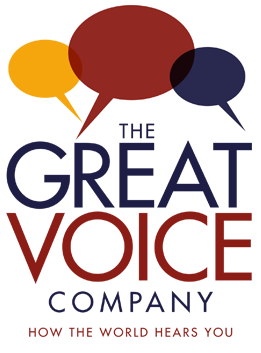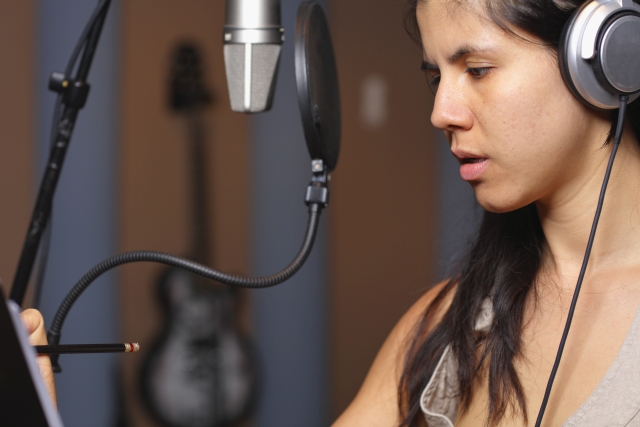The other day I was talking to a friend who is on one of the on-line casting sites. Like many people he is doing lots of auditions but barely getting any jobs.
So he did some research, listened to the work of the talents who were booking a lot and had a BIG scary Halloween moment of truth.
He heard 3 things they were doing differently that he needed to fix if he was going to up his game.
The first was his audio quality. He was recording from his kitchen table and it sounded like it. Hollow and echo-y, you could even hear a clock ticking in the background.
He thought “It’s only an audition. They’ll get the idea.”
This was his first mistake. They don’t get the idea.
Voice buyers assume that what you send them is how a real job would sound. They expect every audition to be broadcast quality and if it’s not, they hit delete.
The talent who are booking the most get this. They make sure the audio quality of everything that leaves their home studio is pristine.
This week we’re going to talk about something that plagues voice talent all around the world, and that is mouth noise, pops and clicks and sticky saliva. There are numbers of things you can do about this, including one new invention that I’m going to tell you about at the end of today’s blog. First, let’s take a look at what causes mouth noise. The first, believe it or not, is stress. It’s really important to work in a relaxed way because if you’re feeling nervous, if you’re feeling angry, if you’re feeling stressed out, your saliva is going to do one of two things. It’s either going to get really thick and clicky, or it’s going to start to run and you’re going to feel like you’re drooling like I feel right now, when you’re working.
You got to chill. That’s the first thing that you want to do. Second cause is actually plain old dehydration. Now, everybody knows you want to drink water during a voice over session, but you probably didn’t realize how long it takes for your body to absorb that water, and it’s about two hours. So, if you know you’re going to be recording, hydrate yourself beforehand and make sure when you wake up in the morning, you drink a nice big glass of plain water because you’re probably dehydrated from the overnight sleep. Certain medication will dry out your voice. Certain drinks like colas and caffeinated beverages or even ill- fitting dental devices. What are the cures? Well, a lot of people swear by taking a bite of a nice, tart, green Apple like a Granny Smith apple. There’s a spray called Entertainer’s Secret, which is helpful. There’s even synthetic saliva that you can purchase at the drug store. It doesn’t taste so great. I’ve tried it.
You can try eliminating certain foods from your diet like dairy and trying to go gluten-free, and certainly don’t eat dairy right before a voice-over session. Fatty foods will also contribute to mouth noise, but there’s something digital that you can use and we use it. It’s called Isotope. This is a piece of software. It’s expensive, so I don’t recommend it for beginners, but something you can add to your list. I-S-O-T-O,-P-F E. This thing gets rid of pops and clicks. There you have it. Everything you need to know about mouth noise, and how to get rid of it.
To get the rest of the story and learn what else my friend perceived in his quest to improve his auditions click the link for this week’s short Inside Voice Over video training blog:
Watch this week’s short training video Here Now
After you watch the video be sure to leave a comment. I always love to hear from you so I can support you as you grow your voice over career.
To your voice over success,
Susan Berkley,
Founder, The Great Voice Company
PS
Make 2019 your best year ever! My Voice Over Accelerator Bootcamp will show you how. December 1-3 at the Great Voice Studios, Englewood Cliffs, NJ. Click or call: 800-333-8108, talent@greatvoice.com or



Yes, I use iZotope RX (currently using version 6; version 7 came out recently, but I don’t see a compelling reason to upgrade.) The only trick with it is you have to tune it very carefully, or you’ll take out some stuff you need, like trailing “T”s and “D”s. Still best to not produce those clicks in the first place!
Have a great day…
Susan, I did not know about most of your tips for VO’s. So this is great I am guilty of the stress factor, makes perfect sense to not be stressed. Drinking water 2 hours before great one. I have not allow for that amount of time. No dairy or fatty foods, O/S tip. Granny Apple is going to be a habit for me to do before each VO. Thanks again these all are very good and so obvious which is probably why I did not know about them. Look forward to hearing from you again.